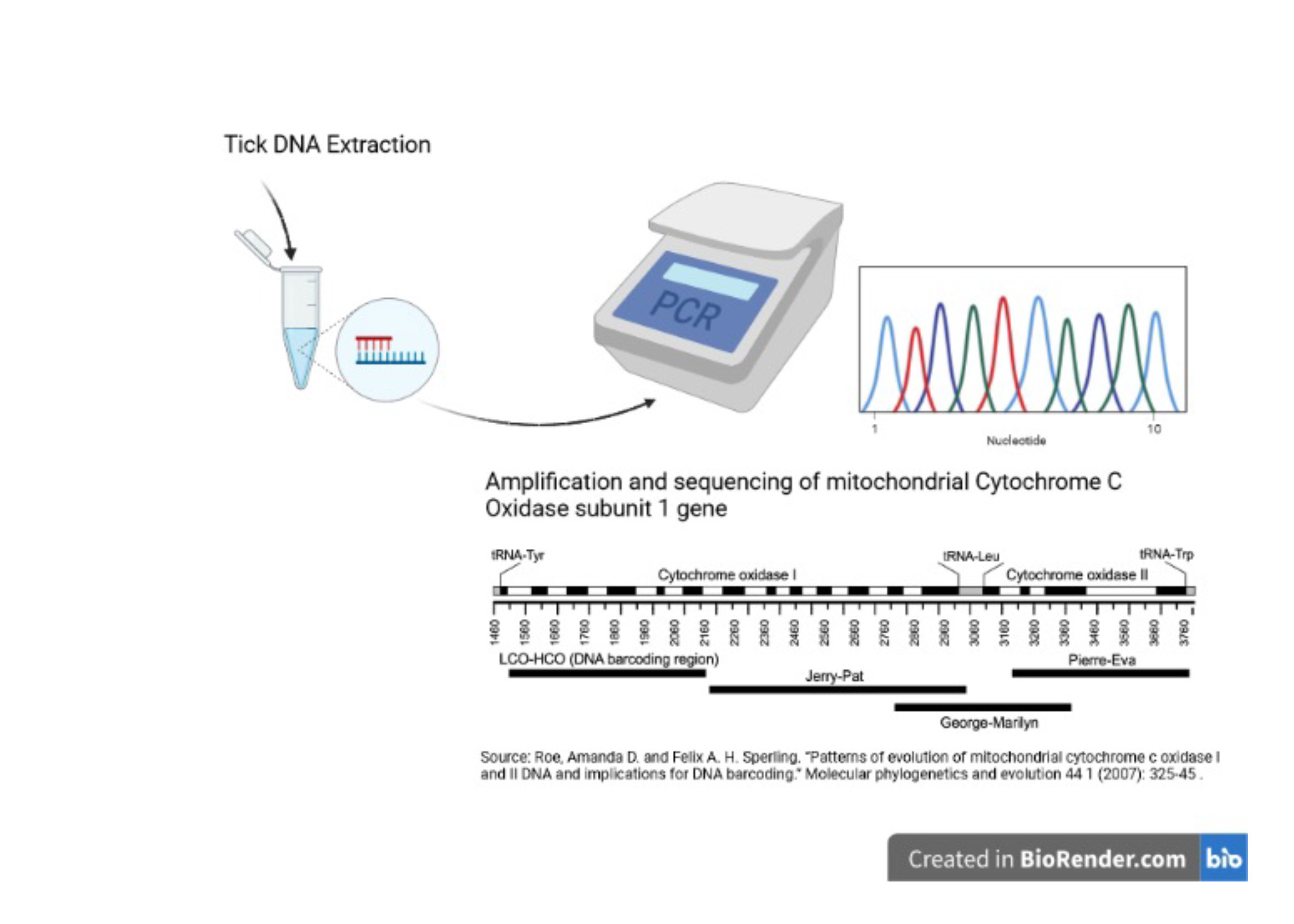Hard ticks are considered the second most important vector of veterinary and human diseases. Tick-borne diseases (TBD) represent a growing economic and health burden for humans and animal health worldwide. In Uganda, more than 75% of total losses of cattle production have been linked to TBDs, and there is a rising concern related to acaricide resistant ticks. However, very few studies, if any, have studied the diversity of tick bacterial microbiota and its relation to external factors, such as seasonality, tick species, host species, and geographic location in Uganda. Researchers in the Department of Veterinary Population Medicine - Haejin Hwang, Michael Mahero, and Katey Pelican (MSI PI) - are working on a project to better understand ticks and the diseases they spread.
For this project, the researchers collected 605 tick specimens from livestock (cattle and goats) from two districts in Uganda, Hoima and Kasese, to survey the distribution of tick species and identify external factors shaping the tick bacterial microbiota. They have extracted DNA from the collected tick specimens and sequenced the V4 region of the 16s rRNA to explore the tick bacterial microbiota. The goal of the project is to use cytochrome C oxidase subunit 1 (COI) barcoding, which has been used previously to identify various tick species globally, to identify the ticks collected in Hoima and Kasese and incorporate species identification data into the existing microbiota dataset. The datasets will be integrated and used to improve the researchers’ understanding and mitigation of TBD risk along the human-livestock-wildlife interface in Uganda.
This project recently received a UMII Seed Grant. UMII Seed Grant funds are intended to promote, catalyze, accelerate and advance UMN-based informatics research in areas related to the MnDRIVE initiative, so that UMN faculty and staff are well prepared to compete for longer term external funding opportunities.
This Seed Grant falls under the Securing the Global Food Supply research area of the MnDRIVE initiative.
Research Computing partners:
- University of Minnesota Informatics Institute
- Minnesota Supercomputing Institute
